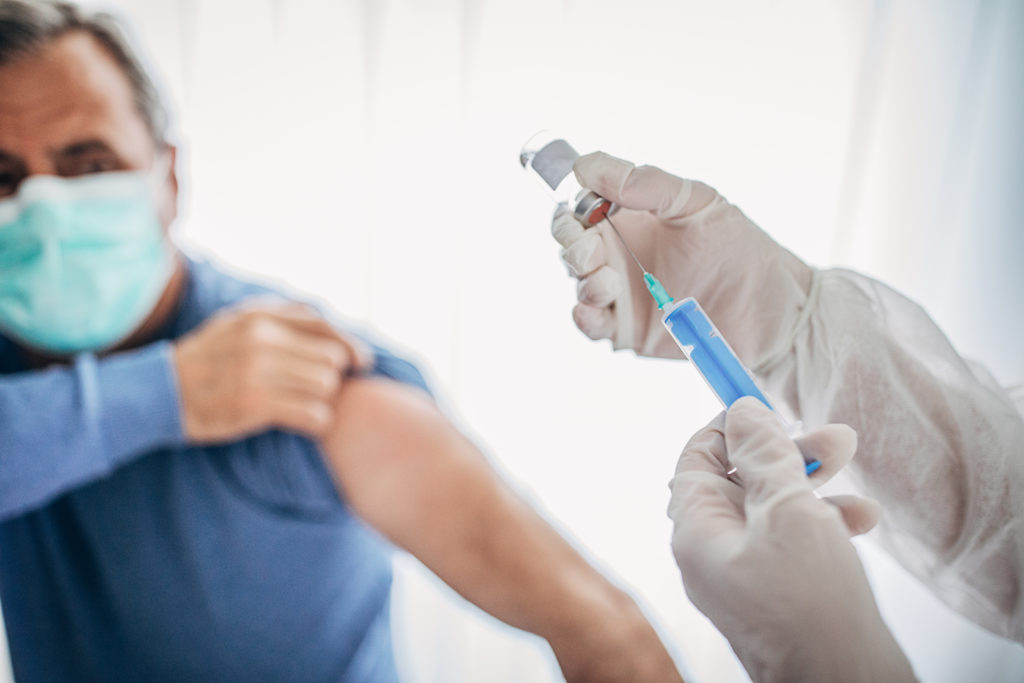
The world watches with anticipation as two possible COVID vaccines near final approval. Local health systems are positioned to receive the first shipment of vaccines as early as December 15. Many employers are wondering, ‘How will the COVID vaccine impact the workplace?’
The Detroit Regional Chamber spoke with Michelle L. Kolkmeyer of Bodman’s Workplace Law Group in a recent COVID-19 Town Hall on whether a mandatory COVID vaccine policy is possible.
Can employers require employees to get the COVID vaccine?
The short answer is yes, employers can require employees to get vaccinated. Like all workplace programs, however, there will be exceptions.
Similar to mandatory flu vaccination programs, it will be important for employers to have a specific reason for requiring employees to receive the vaccine. The program should make sense for the service the business provides. For example, health systems can implement mandatory vaccination for employees that spend a lot of time with high-risk populations such as the elderly or patients with compromised immune systems.
Exceptions
Like any employee vaccination program, leadership should prepare for exceptions:
- Medical reasons: Employees with certain medical conditions or who are sensitive to vaccines may choose to request an exception. In response, the employer should be ready to offer other precautions such as additional PPE or working from home.
- Religious or faith-based reasons: Employees with sincerely held religious beliefs may choose to request an exemption.
Strategies for encouraging employees to get the COVID vaccine:
For employers who will not be implementing an employee vaccine program, there are a few opportunities to encourage the workforce to get vaccinated:
Explain the benefits: There is overwhelming evidence proving that vaccination is the best way to protect ourselves and others from disease. For our society to overcome the COVID-19 pandemic, herd immunity must be achieved. Herd immunity occurs when a vast majority of a population (or “herd”) has antibodies for a specific disease. As a result, the whole population becomes immune, not only those with antibodies, according to Mayo Clinic. The COVID vaccine is the key to ending the pandemic and saving lives.
Reassure employees the vaccine is safe:
- Both Moderna and Pfizer/BioNTech COVID vaccines have undergone a series of safety trials.
- The Pfizer/BioNTech clinical trials involved 42,000 participants and yielded a 95 percent success. Moderna announced a 94 percent success rate based on clinical trials involving 30,000 participants. The United Kingdom has already approved Pfizer’s vaccine for widespread use.
- An independent Data Monitoring Committee (DMC) reviewed clinical trial data to confirm it is safe before the vaccines were submitted for FDA authorization.
- Simply because this vaccine was developed quickly does not mean it is dangerous or ineffective.
Be flexible with schedules: As of now, the COVID vaccine will require two doses, either 21 or 28 days apart depending on the vaccine. Employers should be mindful of this requirement and flexible when employees need to schedule time to receive their second dose.
Employers can start planning now to ensure the health and safety of their employees, customers, and community. Vaccines are a very sensitive topic, now more than ever. It will be important for employers to assess whether an employee vaccine program makes sense for their business and act accordingly.